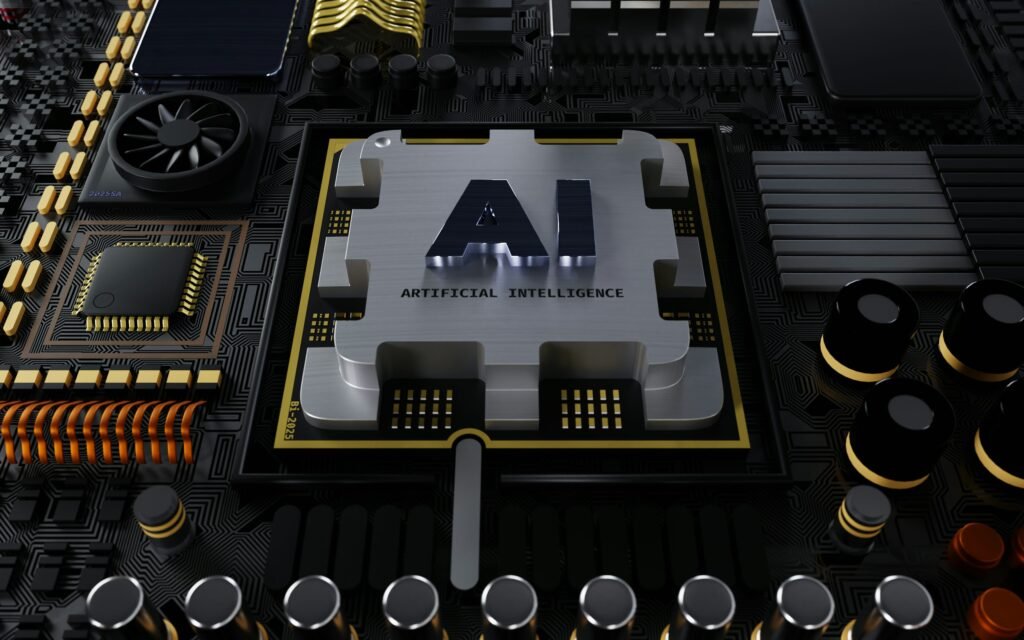In today’s rapidly evolving technological landscape, artificial intelligence general purpose technology stands out as a transformative force, revolutionizing industries and everyday life. As a general-purpose technology, AI has the potential to reshape the way we interact with the world, much like electricity and the internet did in their respective eras. In this blog post, we will explore what makes AI a general-purpose technology, its implications across various sectors, the challenges it poses, and the future trends we can expect to see. Essential Guide to Business Formal women
Understanding Artificial Intelligence General Purpose Technology
What is General-Purpose Technology?
Artificial intelligence general purpose technology are innovations that can be used across a wide range of industries and applications, significantly impacting the economy and society. These technologies often lead to major changes in productivity, create new markets, and alter the way people live and work. Historical examples include:
- Electricity: Revolutionized manufacturing, transportation, and communication.
- The Internet: Changed how we communicate, access information, and conduct business.
Why AI is a General-Purpose Technology
Artificial intelligence qualifies as a general-purpose technology due to its versatility and wide-ranging applications. AI systems can analyze vast amounts of data, learn from patterns, and make decisions, which can be applied in various fields such as healthcare, finance, manufacturing, and education. This adaptability allows AI to drive innovation and efficiency across numerous sectors, making it a pivotal player in the technological landscape.
What Channel is the Chiefs Game On Today? Find Out Here!
Impact of AI Across Industries
1. Healthcare
In healthcare, AI is transforming diagnostics, treatment planning, and patient care. Machine learning algorithms can analyze medical images, helping radiologists detect conditions like cancer with higher accuracy. AI-powered chatbots and virtual assistants are improving patient engagement, providing timely information, and assisting in administrative tasks. The integration of AI in telemedicine has made healthcare more accessible, allowing patients to consult with professionals from the comfort of their homes.
2. Finance
The finance industry is leveraging AI for fraud detection, risk assessment, and personalized customer experiences. AI algorithms can analyze transaction patterns to identify anomalies indicative of fraud, thereby protecting consumers and institutions. Additionally, AI-driven robo-advisors provide tailored investment advice based on individual risk profiles and financial goals, democratizing access to financial planning.
3. Manufacturing
In manufacturing, AI enhances production efficiency through predictive maintenance and quality control. AI systems can monitor machinery and predict failures before they occur, minimizing downtime and reducing costs. Automated quality control processes powered by AI can ensure products meet stringent quality standards, thereby enhancing overall operational efficiency.
4. Education
AI is also making strides in the education sector by personalizing learning experiences. Intelligent tutoring systems can adapt to individual student needs, providing tailored resources and support. AI can analyze student performance data to identify areas of improvement, allowing educators to intervene effectively and enhance learning outcomes.
Challenges and Ethical Considerations
Despite its potential, the rise of AI as a general-purpose technology comes with challenges and ethical considerations that must be addressed.
1. Bias in AI Systems
AI systems learn from data, which can sometimes reflect societal biases. If not addressed, these biases can lead to unfair outcomes in areas such as hiring, lending, and law enforcement. It is crucial to develop algorithms that are transparent and fair to ensure equitable treatment for all individuals.
2. Privacy Concerns
The collection and analysis of personal data raise significant privacy concerns. Striking a balance between leveraging data for AI advancements and protecting individual privacy is essential. Robust data protection regulations and practices must be implemented to safeguard users’ information.
3. Job Displacement
AI’s ability to automate tasks raises concerns about job displacement in various industries. While AI will create new job opportunities, it will also render certain roles obsolete. To mitigate the impact, a focus on reskilling and upskilling the workforce is vital, ensuring individuals are equipped for the changing job landscape.
Future Trends in AI
The future of AI as a general-purpose technology is bright, with several trends on the horizon:
1. Enhanced Collaboration Between Humans and AI
As AI continues to evolve, we can expect a more collaborative relationship between humans and machines. AI will augment human capabilities, allowing individuals to focus on complex decision-making and creative tasks while automating routine processes.
2. Increased Integration of AI in Daily Life
AI will become increasingly embedded in everyday life, from smart homes and autonomous vehicles to personalized healthcare solutions. This integration will enhance convenience and efficiency, shaping how we interact with technology.
3. Advancements in Natural Language Processing
Natural language processing is expected to improve, enabling more intuitive interactions between humans and machines. As AI becomes better at understanding context and nuance, applications such as virtual assistants and customer service chatbots will become even more effective.
FAQs
1. What is a general-purpose technology?
A general-purpose technology is an innovation that has wide-ranging applications across multiple industries and significantly impacts the economy and society.
2. How is AI used in healthcare?
AI is used in healthcare for diagnostics, treatment planning, patient care, and telemedicine, improving efficiency and accessibility.
3. What are the ethical concerns related to AI?
Ethical concerns include bias in AI systems, privacy issues related to data collection, and the potential for job displacement.
4. What does the future hold for AI?
The future of AI includes enhanced human-AI collaboration, increased integration into daily life, and advancements in natural language processing.
Conclusion
Artificial intelligence is undoubtedly a revolutionary general-purpose technology that is reshaping our future. Its ability to enhance productivity and innovation across various sectors is already evident, but it also brings forth challenges that require careful consideration. As we move forward, embracing AI’s potential while addressing ethical concerns will be crucial in harnessing its transformative power for the benefit of society.



